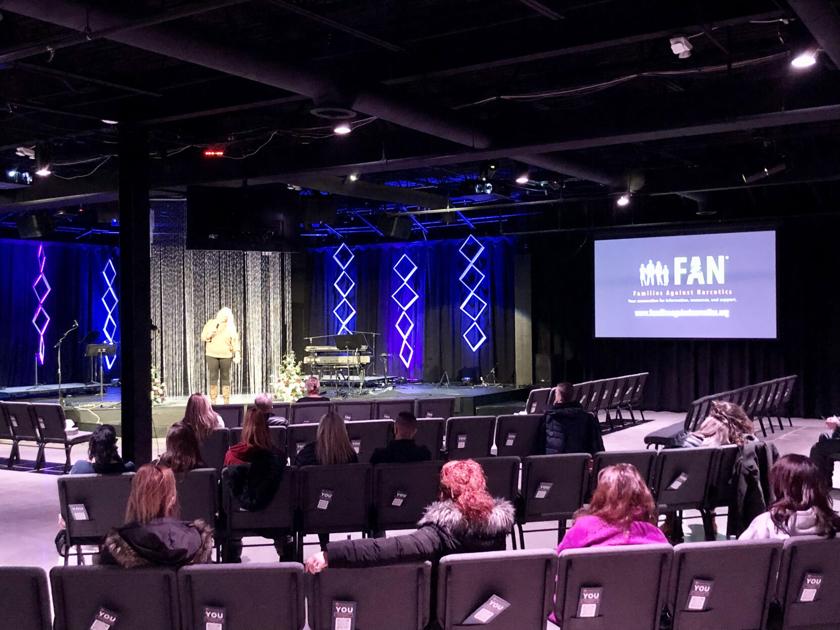Depression.
Substance abuse.
Divorce.
All increased dramatically over the past year in Oakland County, experts say. And all are by-products of a year in isolation, coupled with unemployment and financial insecurity that the coronavirus brought.
But mental health advocates say some good has come out of the pandemic: More awareness of help that is available and perhaps less stigma attached to reaching out for it.
Dana Lasenby, executive director and CEO of the Oakland Community Health Network, calls the pandemic an “opportunity” to get the word out about services that have always been available.
OCHN offers mental health services to those who qualify based on income or disability, as well as providing referrals to those who don’t qualify.
Requests for help have increased, along with the number of people who qualify economically, Lasenby said.
“People are now talking about it,” Lasenby said. “For us, it really is an opportunity to talk about what we can do when people say, ‘How can I help my child, depressed about not going to school? How can I help my husband, depressed about being out of work?’”
Throughout the pandemic, OCHN has continued its ongoing efforts to publicize services available via billboards, radio and television ads, direct mailings and electronic email campaigns to schools and faith-based organizations.
ROOTS OF THE PROBLEM
“Isolation is evil for those coming out of recovery,” said Linda Davis, executive director of Families Against Narcotics, which has experienced a marked increase in people seeking help since the pandemic.
She pointed to a client who had been sober for 15 years and relapsed.
Since the pandemic, FAN has struggled to keep up with the demand for scholarships that it offers to people exiting rehabilitation programs who don’t have a place to go. The scholarships give them two weeks of assistance, or up to a month in extreme circumstances.
OCHN reports that overdose deaths increased 10% in Oakland County since the pandemic began. That’s far below the 29% increase reflected in national studies. But, Lasenby said, even one death is too many.
The pandemic made it difficult for recovering alcoholics to make the human contacts they often need to remain sober, said Bob S., general manager of Alcoholics Anonymous of Greater Detroit, which holds meetings in Ferndale and Pontiac.
At the beginning of the pandemic, many of the churches where support group meetings were held had closed. The meetings were held virtually for a time.
“It’s not the same experience,” he said.
“The connections we have with other humans are very important,” he said, citing the in-person benefit of having someone approach a new attendee after a meeting and offer their phone number or other support.
“Part of recovery is doing things that aren’t comfortable,” he said, like acknowledging a drinking problem in person.
By May of last year, the meetings moved outside to backyards and parks. Not long after, the meetings returned to their original indoor locations.
NO BUFFER BETWEEN SPOUSES
“We’ve seen an uptick in divorces and custody issues” among couples who aren’t married and raising children together, said Akiva Goldman of the Troy law firm Goldman Associates.
“It’s no great surprise, he said.
The pandemic has removed the “buffer” of a spouse being gone for eight hours a day or more at work, he said.
Many are dealing with financial uncertainty on top of perpetually being stuck in the same house together. Economic stress has a huge impact on the success of marriages, Goldman said.
“They have no one to vent to” if they’re unhappy in a relationship, as they can’t see family or friends, he said.
A new twist on family law issues involving children: Couples used to have disputes over who got custody of the children. Now they fight over who has to take them.
“They’ve been stuck at home with the kids, too,” Goldman said, and have probably realized there are things about their kids that they don’t like.
“(Being at home) is like having a terrible headache. Everything gets magnified” he said.
SOURCES OF HELP
Here are a few local sources of help:
Oakland Community Health Network
24-hour hotline: 1-800-231-1127
Main number: 248-858-1210
Families Against Narcotics
fan@familiesagainstnarcotics.org
586-438-8500
Alcoholics Anonymous of Greater Detroit
248-541-6565
